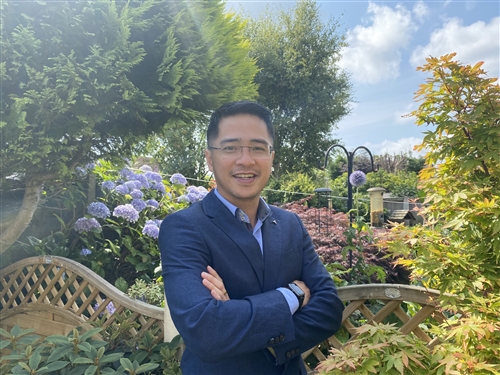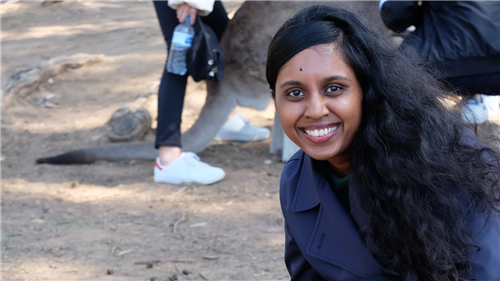A research fellow at the Alice Lee Centre for Nursing Studies, National University of Singapore Yong Loo Lin School of Medicine, Dr. Sheena Ramazanu was among the 35 fellows participating in the Technology and Innovation seminar, held virtually by the YSEALI Academy at Fulbright in September 2021. From her professional practice as a registered nurse to her scholarly career in teaching and research, we spoke with the Singaporean fellow about the stories that inspired her journey, including the valuable lessons gained from the YSEALI seminar and technology’s potential to transform the field of healthcare across the region.
“We may have access to good education, but without health, be it mental health or physical health, there’s no well-being,” Dr. Sheena Ramazanu reflects on the memory that kindled her enduring dedication to healthcare. It took place during a visit to the Singapore Association of the Visually Handicapped, when she was still in secondary school, in which Ramazanu met and talked to two visually impaired persons – one boy, despite his condition, had learn to become a massage therapist; and a girl, only 16 years old at the time, went blind due to diabetic retinopathy, a medical condition caused by the high blood sugar from diabetes. “The conversations we had made me realize how important health is. It stayed with me and from that moment on, I became very keen to go into nursing,” she says.
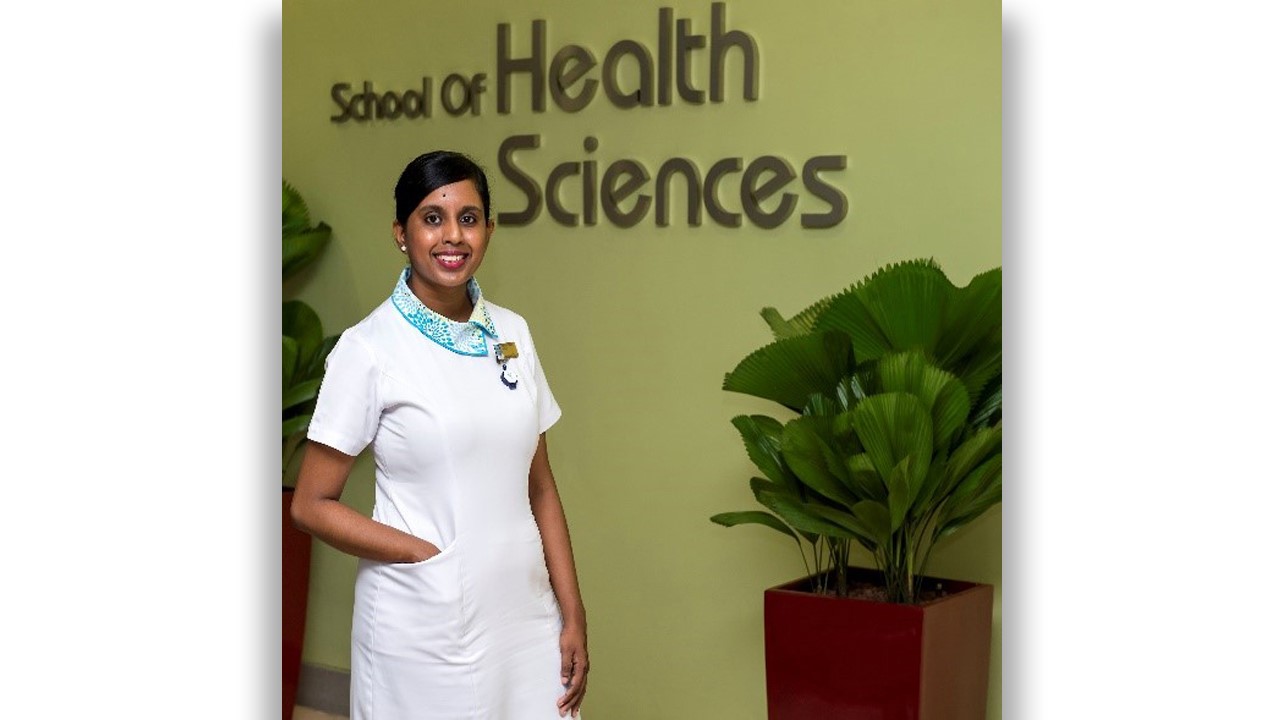
Dr. Sheena Ramazanu is a Nursing Alumni of Nanyang Polytechnic, School of Health Sciences, Year 2011.
At the Nanyang Polytechnic, Singapore, Ramazanu graduated with Merit for her Diploma in Nursing in 2011, while in the same year, received several awards including the Ministry of Health Gold Medal (for outstanding performance in the course of study leading to the diploma), the Singapore Nurses Association Award, and CapitaLand Healthcare Frontliners Award. In 2010, while she attended the University of Pennsylvania School of Nursing on a Scholarly Internship, Ramazanu was talking to a patient when she suddenly collapsed. The cause was later identified as heart failure. Still a student, she could only observe the doctors and nurses’ emergency response, and pray.
“When the patient recovered the next day, I asked for permission to visit her in the intensive care unit. She told me even though she couldn’t visualize me, she heard my scream and calling out for help, and thanked me for my prayer” Ramazanu recalls. “That particular experience taught me the value of life. For one moment, people can be talking with each other happily. And then in a tiny span of time, things can change drastically. It made me realize how valuable the nursing profession is.”
In 2013, Ramazanu attained the Bachelor of Science in Nursing with First-Class Honor from the University of Manchester-Singapore Institute of Technology, which also awarded her Full Scholarship to pursue a Master in Clinical Research from 2014 to 2016. Before completing her Doctor of Philosophy on a 3-year PhD fellowship offered by the prestigious Hong Kong Polytechnic University (School of Nursing) in 2021, Ramazanu had served as a Registered Nurse with Alexandra Health (Khoo Teck Puat Hospital and Yishun Community Hospital) for 7 years, and was an annual recipient of their Service Champion Award.
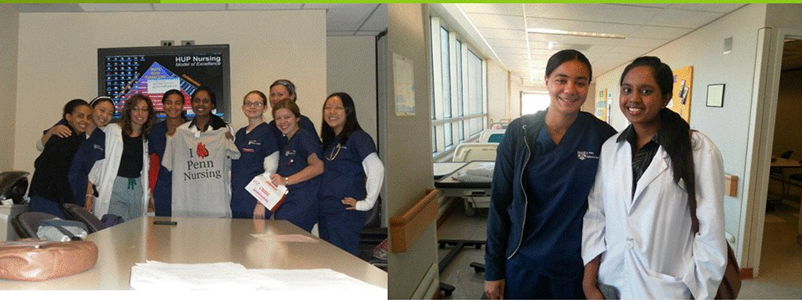
Dr. Sheena Ramazanu was a Visiting Scholar at University of Pennsylvania School of Nursing, Philadelphia, USA, for a month in 2010.
It was the hands-on experience within that clinical setting – working with women and children, washing the bodies of people who have passed on, delivering care as a stroke nurse – that prompted her research studies on improving health outcomes for persons with chronic disease conditions and their family caregivers. Her papers have been published in international refereed journals such as the Journal of Nursing Research, Journal of Neuroscience Nursing, Osong Public Health and Research Perspectives, Reviews in Medical Virology, and Journal of Stroke and Cerebrovascular Diseases.
“Beyond carrying out my duties as a nurse, I decided to take a step back and become a listener,” she says. “Sometimes patients can hold different values, perceptions and personal beliefs when it comes to healthcare, which may result in conflicts and difficulties for caregivers to administer medical treatments. Through my research expertise, I feel that I’m able to put myself in the patients’ shoes, to analyze their worlds with empathy by asking them the right questions and get to know their life experience.”
The YSEALI seminar on Technology and Innovation: A platform for connection, collaboration and solutions
Currently, Dr. Sheena Ramazanu works and teaches as a research fellow at the Alice Lee Centre for Nursing Studies, National University of Singapore Yong Loo Lin School of Medicine. Whereas ‘pre-Covid normal’ had allowed in-person research, counseling and lectures with patients, families and students, the pandemic has impelled her to find a new approach. “Technology has been playing a vital role in the educator sector. With hybrid teaching, I’ve learned to engage effectively with students both online and on site. In terms of research, as we can’t always go to the hospital and call on the patients and their family caregivers, we can use technology to get connected with them,” she says. “The past two years have taught me that technological solutions are so important, and the way forward is digital transformation. I don’t think we will be moving back to how things were before.”
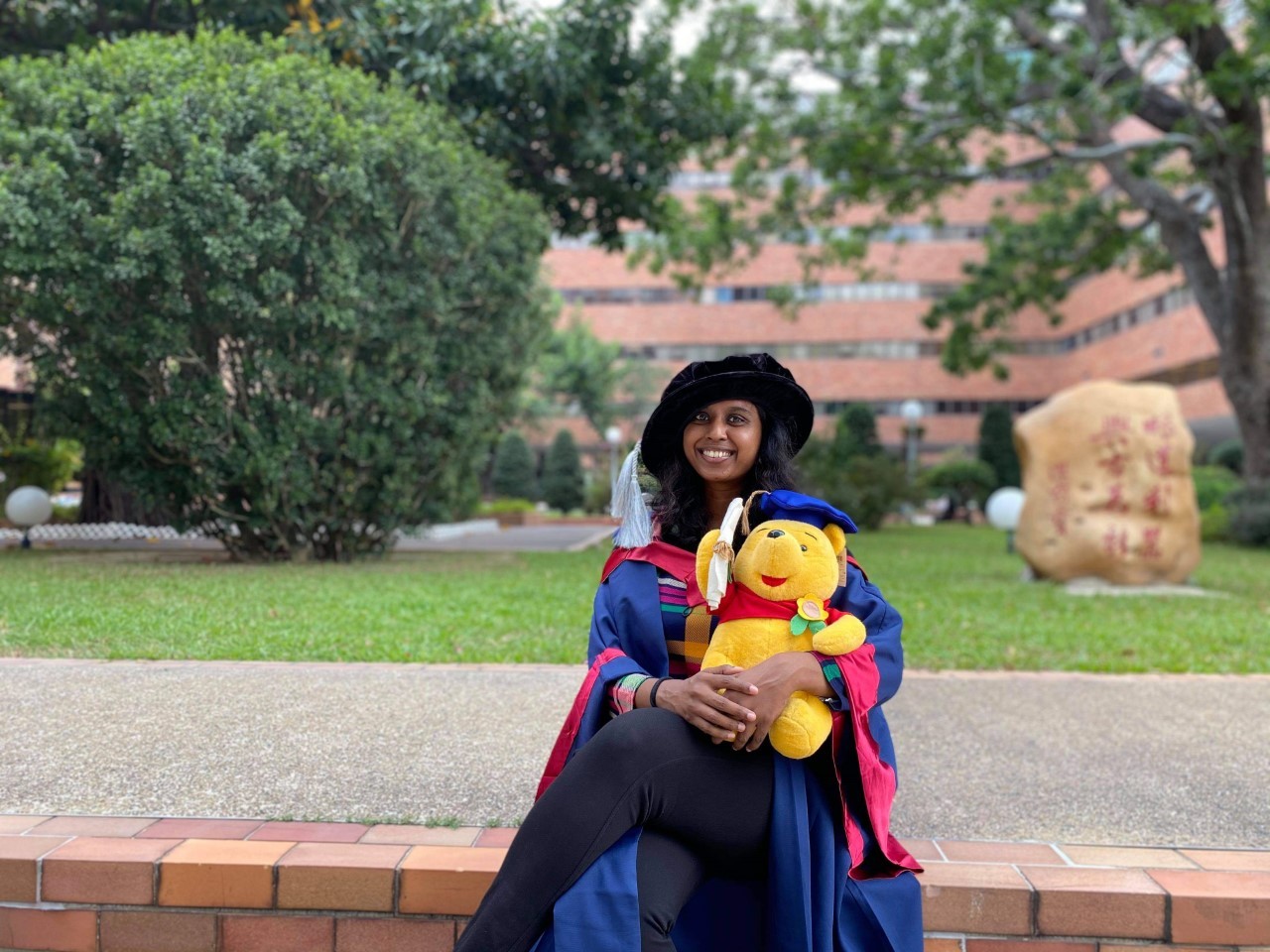
Dr Sheena Ramazanu was the winner of the Research Grants Council’s Hong Kong PhD Fellowship Award (2017-2020).
Ultimately, Ramazanu wants to develop technology-based solutions that provide virtual intervention and counseling for patients, as well as help the underserved in her country locate relief resources more easily. Once she came across the information about the YSEALI seminar on Technology and Innovation, Ramazanu knew it was right for her, and decided to apply. “Honestly speaking, I do not have much expertise in technology. All I hoped was to learn more about digital transformation and how to curate relevant programs for my work. But I felt very warm and welcome the moment I received the acceptance email from Fulbright and the YSEALI Academy,” she smiles.
Centered on the theme of Digital Transformation Challenges and Opportunities in Post-COVID-19, the seminar was one of the three flagship seminars (the others being Public Policy, and Entrepreneurship) organized by the YSEALI Academy at Fulbright University Vietnam in 2021. Through an intensive series of lectures, panel discussions and workshops, young professionals from Southeast Asian countries can build capacity to address challenging issues facing the region, while having the opportunity to engage with prominent scholars and industry experts from across the globe.
“Going into the seminar, I did not realize that we would meet with distinguished professors like Dr. Sandra Matz. I’d come across her name before, but I did not know that we would all be sharing the same space with her, so to speak,” Ramazanu says. “I think it was phenomenal. I became fascinated with what I experienced from day one, and that feeling carried over until the very last day of the program.”
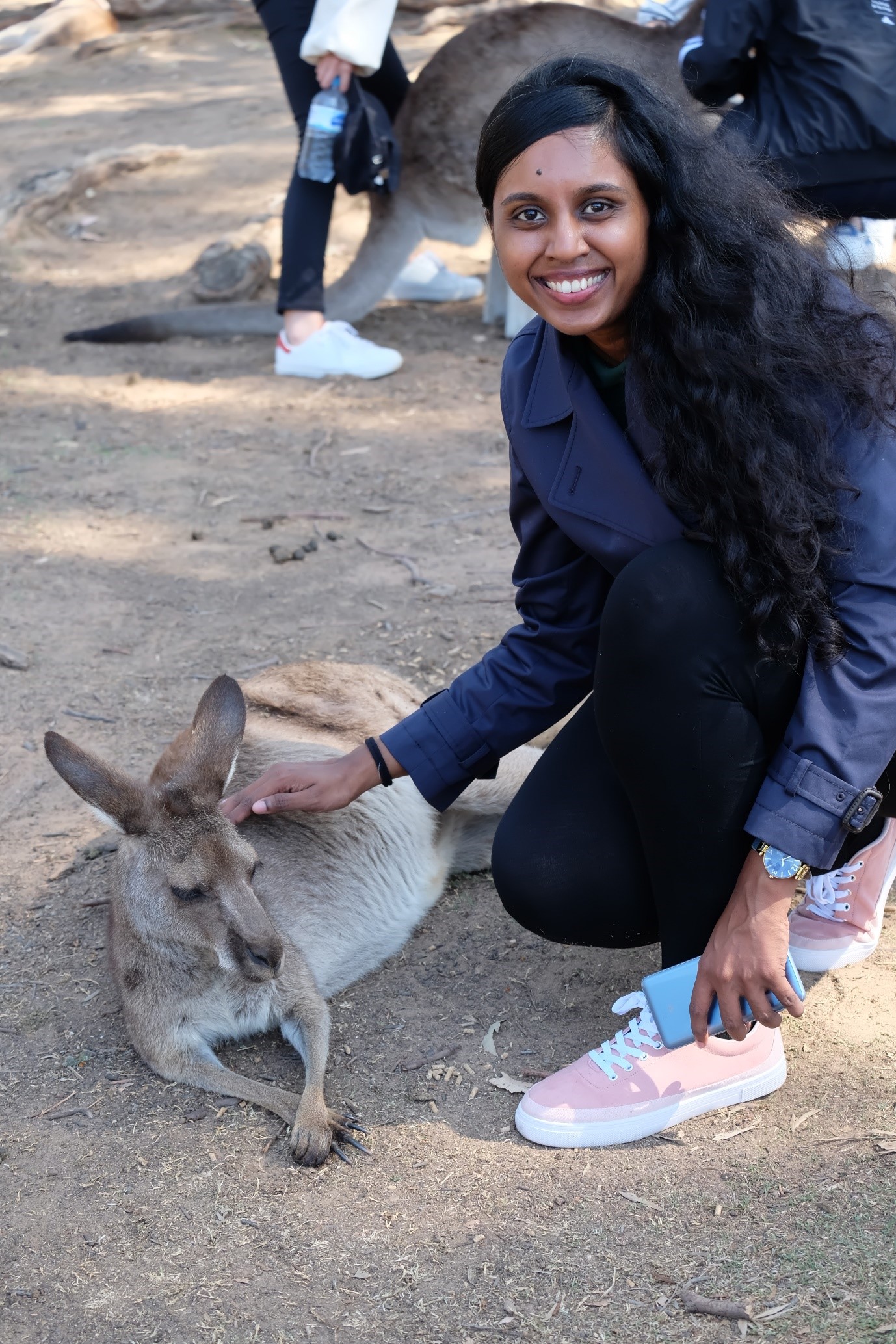
At the Lone Pine Koala Sanctuary, Brisbane, Australia, during her Visiting Scholarship at Queensland University of Technology in 2019.
Alongside Dr. Sandra Matz, a world-renowned computational social scientist, and her lecture on ‘Digital footprints of people and businesses for better decision making’, Ramazanu was also impressed with the extensive issues and topics covered within the seminar, including machine learning, data sciences, fintech, cybersecurity, and climate change. Another standout lecture was delivered by Dr. Johan Barthelemy from the University of Wollongong, Australia. Titled ‘Internet of Things and Artificial Intelligence of Things for Smarter Communities’, it helped her recognize the importance of human connection, or rather, the human touch, in developing successful technological solutions.
“It’s quite easy to build anything you want, but without talking to people, learning about their needs, their experiences, their stories, they will not find the reason to use it,” she stresses. “The seminar gave me an expanded view on so many other worldly problems that we’re facing together. It made me realize that life is a jigsaw puzzle, that I myself cannot solve all the problems related to healthcare, that we need people from different expertise to come together, each of us an important piece, to collectively solve the issues at hand.”
An excellent platform to share and build ASEAN identity
The YSEALI seminar on Technology and Innovation was also packaged with workshops on leadership skill, which Ramazanu deems indispensable to effective – and emotive – communication that will push ideas into reality. “One thing that I will always keep in my heart is the network of people who we meet in our life, how essential they are. In other words, your network is your net worth,” she says, remarking on the friendship formed over the seminar with her YSEALI fellows. “To solve a particular world problem, it will not be possible if we work in silos. When we come together from Singapore, Vietnam, Malaysia, Thailand, Myanmar or the Philippines, we’re not only representing our countries. Beyond that, we’re sharing an ASEAN identity.”
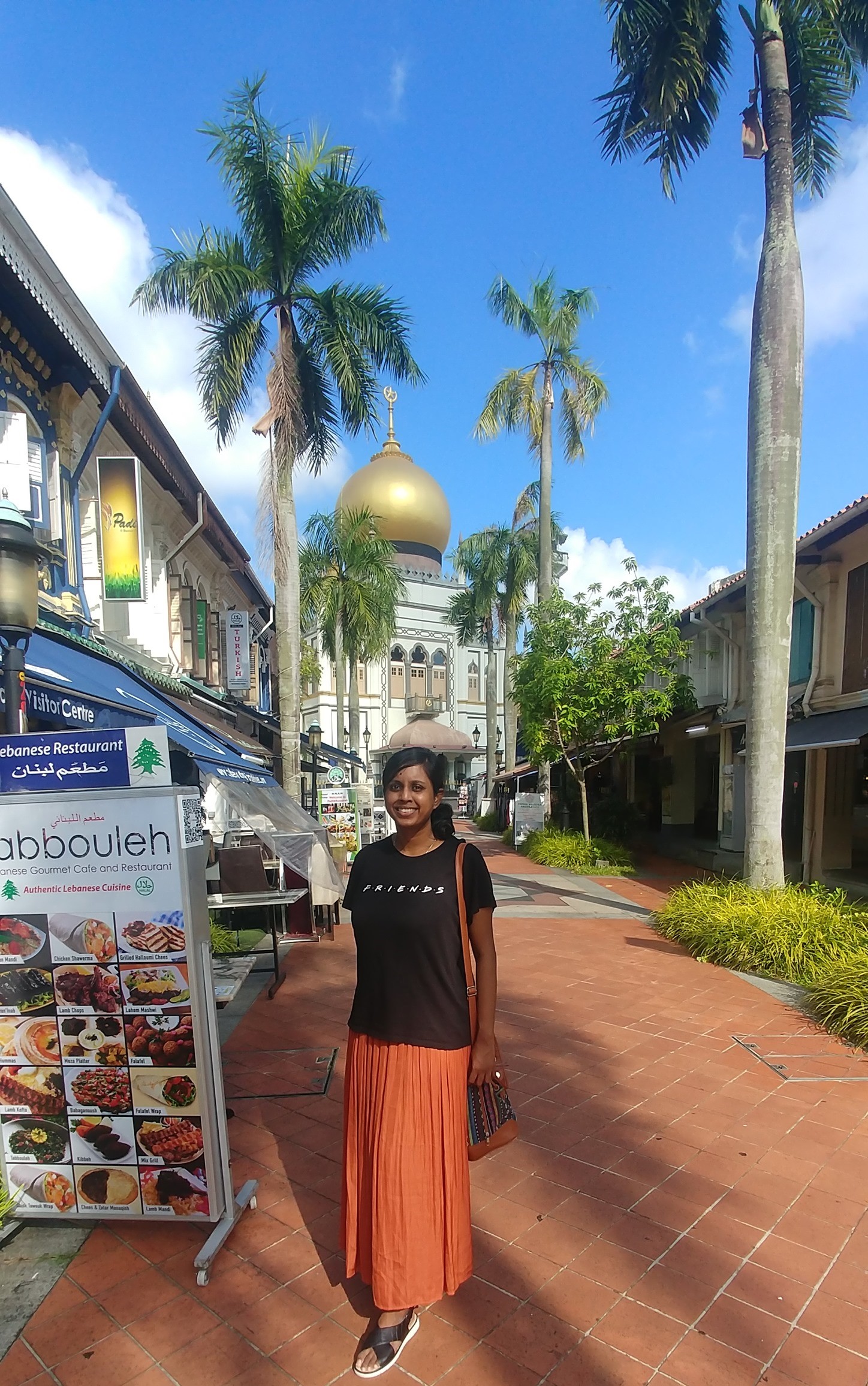
Dr. Sheena Ramazanu at Iconic Sultan Mosque, Singapore.
During the seminar, her team of 5 was assigned to give a critical analysis presentation on the electronic health record system in their home countries. “It was an eye-opening experience for me,” she says. “Countries like Singapore, which have more access to the internet and technology, have 100% usage of electronic health records. Unfortunately, in some other countries, not everyone can get the same coverage and offered support on time. This will be detrimental to their health.”
Ramazanu believes by sharing expertise and knowledge across disciplines, getting in on the cultural and social perspectives of different parts of the world – something the YSEALI Academy has proved to be an excellent facilitating platform – can we get united to act and come up with solutions to help the vulnerable in certain parts of ASEAN. This month, she will be giving a talk on the issue of mental health at the upcoming YSEALI seminar on Entrepreneurship (at the Hong Kong Polytechnic University, where she obtained her PhD, Ramazanu had received the Certificate in Mental Health First Aid by The Mental Health Association of Hong Kong).
“As an alumnus currently serving on the YSEALI Leadership Board, I want to see this family grow bigger and stronger every year. And it will definitely grow,” she says. “Whenever time permits, I will always contribute to this important network. Whether it’s health-related talks, new findings in my research, or technological solutions to help people in the region adopt a healthier lifestyle, I look forward to sharing them whenever an opportunity arises.
“Hopefully, I will be able to foster a very good relationship between the National University of Singapore and Fulbright University Vietnam in terms of health-related technological solutions and scientific research. Our work together will definitely benefit the community in Singapore and Vietnam. But more importantly, by incorporating our knowledge and expertise, the ideas and projects we have will be much more enriched, thus benefiting the entire regional community.”
Bao Quyen
Related Articles
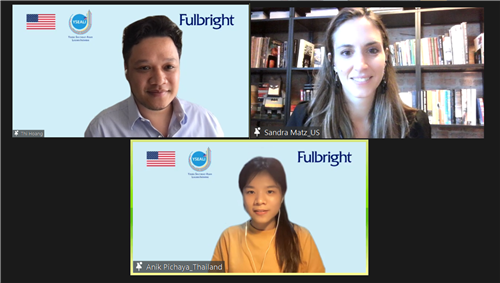
“How ‘big’ can Big Data get?” – A conversation with world-renowned computational psychologist Sandra Matz
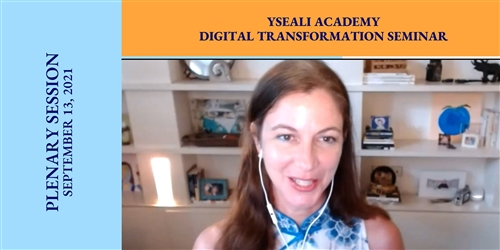
YSEALI Academy: Stephanie Davis of Google on Digital Transformation
